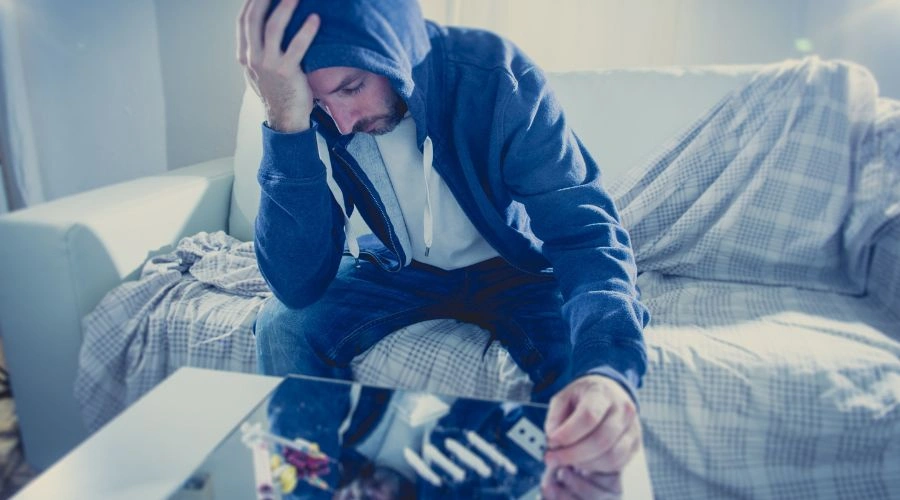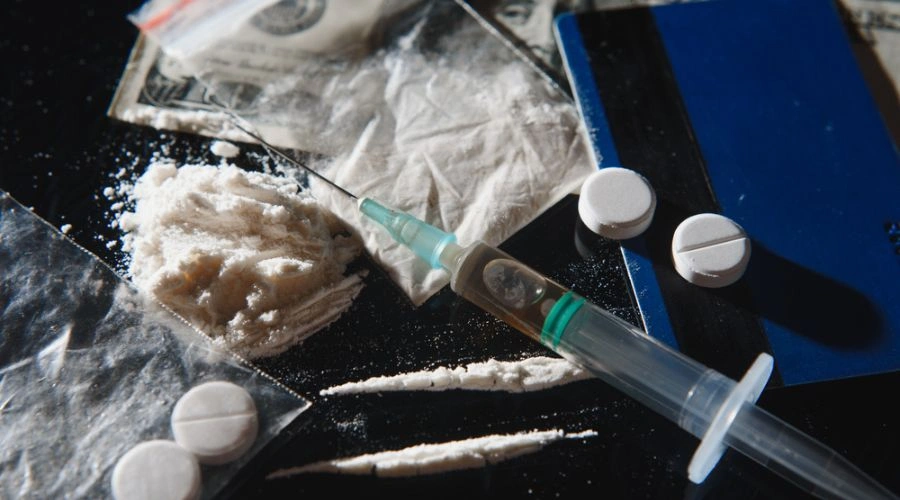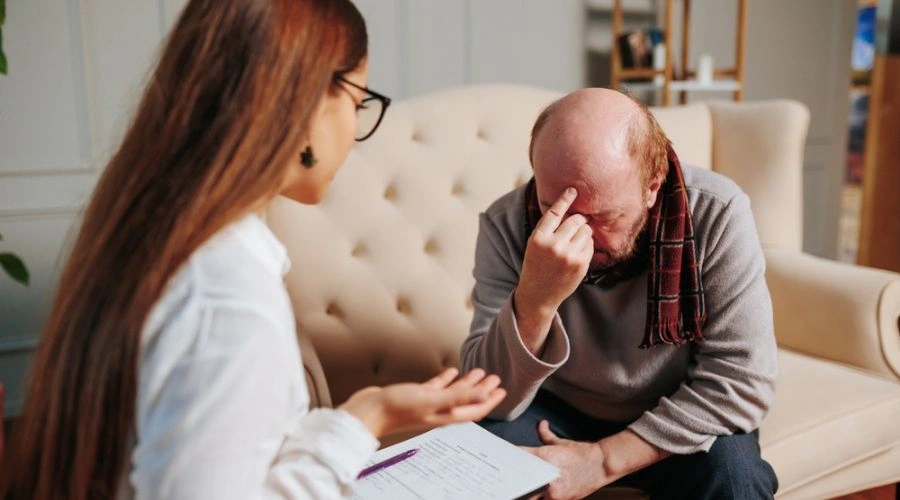The Relationship Between PTSD and Substance Use Disorders
After a traumatic event, it can be hard to move past what happened. You experience that moment, over and over again. Using drugs or alcohol offers a tempting escape. As they numb, you can push down emotional pain and dull the things you don’t want to remember. Or, you might just need something to make it through the day.
Drugs and alcohol seem to help, but they make post-traumatic stress disorder (PTSD) symptoms much worse. The good news? You aren’t alone. Many have found themselves stuck in this brutal cycle of dual diagnosis PTSD and substance abuse disorder.
And, many have turned to South Shores Detox where we specialize in dual diagnosis treatment in a space that promotes healing.
Is Addiction and Co-Occurring PTSD Common?
From military veterans to people who have survived childhood abuse, sexual assault, accidents, violence, or natural disasters, co-occurring addiction and PTSD are common. Traumatic stress disorder also isn’t the only condition that you might have.
You may struggle with depression, anxiety, eating disorders, or personality disorders.
Understanding the Relationship Between PTSD and Addiction
PTSD and addiction do affect similar groups but are not necessarily caused by one another. Traumatic experiences can cause depression, anxiety, and post-traumatic stress disorder. Likewise, trauma is a risk factor for addiction.
Sometimes, though, alcohol or drug abuse emerges as a temporary solution for posttraumatic stress disorder. You turn to substance use as an escape.
Like drugs and alcohol, PTSD also affects your brain function. It’s harder to manage stress, emotions, and impulses. You might seek substances as a temporary way to control what you are going through.
Unfortunately, there is a risk of poorer treatment outcomes with these co-occurring conditions without proper support. You’ll find the right trauma-focused treatment at South Shores Detox.
How Substance Use Can Worsen Symptoms of Post-Traumatic Stress Disorder
Drugs and alcohol offer momentary relief, paired with a high cost. Relying on self-medication isn’t sustainable. As you turn to substances again and again, you get trapped in the cycle of alcohol or drug addiction.
Unfortunately, instead of reducing PTSD symptoms, this cycle makes them worse. It’s more likely that you’ll continue with drug or alcohol abuse. Symptoms like flashbacks, intrusive memories, and insomnia can also get worse.
On the other side of things is extreme emotional detachment caused by substance use. You may feel irritable or aggressive when you have to come back to reality. Some people become so depressed and detached that they consider self-harm.
As you continue this cycle, it’s all too easy to become dependent on your substance of choice. By gaining this false relief, it’s hard to address the trauma that got you here. Without addressing that, recovery is more or less impossible.
Substances Commonly Abused with Posttraumatic Stress Disorder
Trauma survivors might turn to any number of substances for relief. As a legally, easily accessible substance, alcohol is commonly used to escape. It has a depressant effect, relieving anxiety. It can also help you sleep, though it also disrupts sleep schedules.
Some turn to marijuana as a milder substance. However, even weed increases the risk of paranoia which can make PTSD symptoms worse.
Benzodiazepines may also be abused. Medically, they are prescribed for anxiety. As a depressant, however, they increase risks like depression and suicidal ideation.
Benzodiazepines are commonly used to treat anxiety. When taken without medical supervision, there’s a risk of depression and suicidal ideation.
Opiates and painkillers share these risks. However, they are attractive because of the state of detachment and numbness they offer users. With these, there’s also a risk of overdose, especially if combined with other substance use.
While “downers’ are most common, stimulants like cocaine and methamphetamine may also be abused. They trigger alertness after a long night of not being able to sleep.
Last, some trauma survivors try hallucinogens to explore trauma. More often than not, this is damaging and increases the risk of psychosis.
Trauma and Your Brain
People who have PTSD experience trauma so significant that it rewires their brains. You experience physical and chemical changes brought on by the intensity of the stress response. As your brain’s fear center becomes hyperactive and alert, other areas don’t function as well. Your ability to control impulses and think rationally decreases. The memory center can also be damaged by trauma.
These changes bring about troubles in distinguishing what is going on around you from the past. You find similarities between situations, staying on guard in case something happens. It’s easy to get startled and hard to control your emotions.
Even though substances distract you from all this temporarily, they are not a permanent solution. Drugs and alcohol also disrupt brain chemistry, making it hard for those areas to heal. It’s even harder for you to find a sense of control.
What Does a Dual Diagnosis Entail?
Being diagnosed with any two conditions at once is called “dual diagnosis”. PTSD and addiction are common, but trauma also coincides with other mental health disorders. Some people experience physical pain and symptoms, too.
If you don’t treat substance use and other co-occurring disorders after developing PTSD, there’s a higher chance of relapse. It’s easy to slip into old habits as you try to manage these symptoms yourself, ultimately making PTSD and other psychiatric disorders worse. Additionally, if addiction is treated without PTSD support, you don’t experience any real relief.
What Challenges Arise When Overcoming a Dual Diagnosis?
Addiction recovery is challenging on its own. With dual diagnosis, getting the right diagnosis is an obstacle you may have to overcome. An increased risk of relapse and more severe withdrawal symptoms can also pose issues. Rest assured – while challenging, with integrated treatment, recovery is possible.
You’ll breeze past these obstacles at South Shores Detox. We help our clients heal from substance dependence while taking the steps to get them to PTSD remission. After a thorough screening for co-occurring disorders, we’ll craft a personalized plan to treat PTSD and addiction issues.
South Shores also offers in-house medical detox for managing those overwhelming symptoms. Through constant care and symptom management, we offer safety and comfort. This is something many trauma survivors have not recently experienced.
Last, you’ll find unmatched support here. From the first call to our facility to our aftercare services, you’ll feel the South Shores difference from start to finish.
Why Choose Dual Diagnosis Addiction Treatment?
Dual diagnosis supports mind, body, and spirit, all things that need to heal after trauma. You won’t feel like a collection of symptoms at South Shores. Our comprehensive approach promotes total wellness and healing. It’s the only way to treat complex dual-diagnosis cases.
We understand how hard it is to share what you’ve been through. With a trauma-informed approach, you won’t feel pressured or overwhelmed. You’ll learn to trust our team, letting you address traumas without experiencing significant distress. As you learn to manage triggers and intense emotions, together we’ll build a foundation that supports lasting recovery.
Inpatient vs. Outpatient Dual Diagnosis Treatment Options
The complexity of dual diagnosis really benefits from residential care. Inpatient rehab provides high levels of structure and support. We work hard to make this space comfortable and less clinical, offering a sense of safety.
South Shores also offers more flexible outpatient options. We understand everyone’s journey is unique and inpatient rehab doesn’t fit everyone. You may choose outpatient if you want to continue going to work, taking care of family, or sleeping in your own bed during treatment.
We also offer trauma-focused PTSD treatment and addiction recovery through our intensive outpatient and partial hospitalization programs. These programs are flexible and offered on different days of the week. They share many elements with our residential programs – you just don’t sleep here.
Elements of South Shores’ Dual Diagnosis Treatment Programs
South Shores Detox uses a holistic approach for co-occurring PTSD and substance use disorder. Here’s a look at some of our treatment offerings.
A Personalized Approach and Trauma-Informed Care
Everyone’s trauma and their response to it is different. When you choose South Shores, you’ll receive a treatment plan that reflects your needs, goals, and trauma history. This personalized approach makes it easier to establish trust, using an approach that empowers clients while avoiding re-traumatization.
Medical Detox for Withdrawal
The first step in recovery, detox, is also one of the most uncomfortable. At South Shores, we help manage severe symptoms through medication-assisted treatment, when appropriate. We also offer you a safe, comfortable space to detox. As physical symptoms are managed, it becomes easier for clients to focus on healing.
Evidence-Based Therapies for a Dual Diagnosis: PTSD and Substance Abuse
Trauma-informed therapy is essential for PTSD dual diagnosis. Some evidence-based therapies we use include cognitive behavioral therapy (CBT), dialectical behavior therapy (DBT), prolonged exposure therapy (PET), and eye movement desensitization and reprocessing (EMDR).
CBT offers a look at how trauma and substance abuse are related. Trauma shapes your thoughts, and often, your thoughts/emotions are what trigger the desire to drink or use drugs. As you alter these thought patterns, or at least the way you respond to them, it’s possible to turn to positive coping strategies instead.
DBT teaches you to tolerate emotions that cause distress. This is important, as people with lifetime PTSD may have occasional difficult emotions after therapy. You’ll learn skills that help with emotional regulation.
Through PET, you’ll be gradually exposed to the things that trigger you. Being exposed to these triggers makes them lose power.
EMDR offers an opportunity to address memories that may be buried beneath the surface. By processing these painful, buried memories, you allow yourself to heal.
Medication Management for Symptoms of PTSD
Pharmacological treatment, including antidepressants, anti-anxiety meds, and mood stabilizers, can also provide support during early recovery. By easing these symptoms, it’s easier to focus on healing. Some people also have existing mental disorders that require treatment. Medication can be a temporary or long-term solution, depending on your needs.
Peer Group Support
PTSD is often accompanied by social withdrawal, because you may not feel safe in public. You also might pull away from friends and family, whether they trigger you or you don’t feel the same sense of connection as before.
In group therapy, it’s easier to share because these people have also experienced trauma. You’ll find a sense of connection through shared experience, realizing that you aren’t as alone as you once thought.
Aftercare and Relapse Prevention
Our treatment team at South Shores is as invested in your healing as you are. We ensure that even after leaving treatment, our clients are set up to take the next steps in their treatment plan.
Of course, these next steps aren’t going to look the same for everyone. We make sure your next steps are clear, can make sober living referrals, help you find support groups in your local area, and can set you up for ongoing therapy.
Rebuilding Your Life After Trauma
You can have a better life beyond just staying sober. Seeking treatment for post-traumatic stress disorder (PTSD) and addiction lets you create the life that you want. It lets you create a life that feels safe and meaningful, beyond existing in survival mode. Instead of just living, allow your better mental health and learned coping skills to propel you to the next part of your journey!
At South Shores, you’ll have the opportunity to rebuild relationships, explore new passions, and rediscover what it’s like to be happy. You’ll find yourself equipped to handle the typical ups and downs of life, ready for what life has in store for you. As you leave, you’ll find yourself focusing on your goals and the future, instead of reflecting on trauma exposure of the past.
Family Education and Support
PTSD and substance use disorder don’t only affect the person struggling, the whole family is impacted. You may have distanced yourself from your family following a traumatic event. This happens because of negative emotions about what happens or struggles in dealing with PTSD symptom severity. Unfortunately, this can make you feel alone.
When possible, we invite families to participate in the recovery process. Through family education and support, families can be involved in the healing process. They may not have dealt with the traumatic event, but they can learn to communicate better and help support their recovery. This strengthens your support system and helps heal broken connections.
Can I Heal from PTSD Permanently?
Even after you treat PTSD, it’s not all butterflies and rainbows. You will still have the occasional trigger or hard day. By applying what you’ve learned, however, you’ll feel confident in managing the emotions that come along with that. You won’t feel controlled by those bad days.
Being able to cope with post-traumatic stress disorder (PTSD) also allows you to use what you’ve learned through substance abuse treatment and apply it to your life. Dual diagnosis offers the opportunity to reclaim your life and thrive in recovery.
Many people with PTSD and addiction go on to live peaceful, fulfilling lives. You can too.
Call South Shores to Get Effective Dual Diagnosis and PTSD Support
You don’t have to accept that trauma and addiction are in control of your life. Give yourself a fighting chance at South Shores Detox. Through our treatment programs, you’ll find the support you need to truly overcome co-occurring PTSD and substance abuse.
Whether you’ve just started thinking about treatment or are ready to make a change today, we’re here for you. Healing is possible. It starts with one brave phone call, so please don’t hesitate to reach out now.





